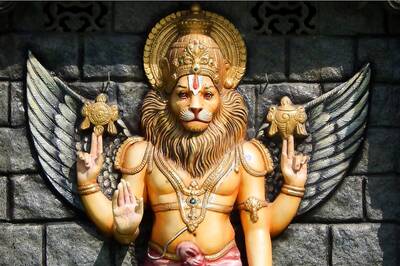
views
Recently, the report proposed by the state-appointed Commission on Rights and Welfare of Women and Children raised many an eyebrow and drew intense debate, especially in the media. The recommendations of the Bill were formulated by a 12-member panel, headed by Justice (retired) VR Krishna Iyer. The proposed Bill envisages strict measures for enforcing a ‘population regulation policy’, including penalization of parents (fine of Rs.10,000 to three months simple imprisonment) having more than two children and encouraging free-of-cost- legal abortions. The Bill also recommends that parents with more than two children should be considered as ‘legally disqualified persons’ for any state benefits. And that no religious or political outfit can discourage family planning. The panel members had to suggest tough measures because though Kerala has a successful population policy in place, it is one of the most densely populated states with a population of 3,33,87,677 persons, (as per the 2011 census).Although Kerala accounts for only one percent of the total area of India, it contains about three percent of the country’s population with a staggering population density of 859 people/square kilometres, which is thrice the national average. The Bill already has had its share of controversy. Various Muslim (Jamaat-e-Islami), women’s rights organizations, the Catholic Church and Hindu Aikya Vedi have warned the government of intense agitations if the Bill is passed.To add to the controversy, St. Vincent de Paul Church in Kalpetta has come up with a reward of Rs.10,000 for couples opting for a fifth child. It will be a tough task for the government to get the Bill passed. Different countries have their own population policies, with some encouraging population growth and others discouraging it. Every European Union Country gives a monthly grant to every child born. The grant increases as the number of children increases. For the first child, the grant is 140 euros, 280 for the second and 1,332 for the eight. China limits couples to one-child policy. Fines and forced sterilization accompany the second or subsequent pregnancies. The moot question is what policy should Kerala adopt? Kerala’s social milieu has changed for the worse with the advent of small and ‘nuclear’ families. Children leave the state for ‘greener pastures’ leaving behind an aged (the average life-expectancy in Kerala being 75 years) and lonely population at home to fend for themselves. People have to fall back on non-existent support systems in times of need, viz. sickness, bereavement, financial and other problems. Families have no security. Children cannot even play in their backyard for want of people to supervise them. Hierarchy in families is non-existent. Discipline, sharing and caring in families are lost, as are values. Selfishness is the rule. The choice is thus between population ‘explosion’ versus ‘small family norm’ with their respective advantages/disadvantages. Moreover, isn’t the commission concerned about more important issues that affect women and children? Girls are pushed out of running trains, raped and left to die on the tracks. Teenage girls are sold off into flesh trade by their parents for money and abused by men in multiples of hundred. Abusive eve-teasing is rampant; chain-snatching, burglary and other crimes are perpetrated against women. Girls are caught on mobile phone cameras, morphed and blackmailed. The commission should move away from its autocratic and controversial population policy, which may not see the light of day to more important issues that affect women and children in this state.
















Comments
0 comment